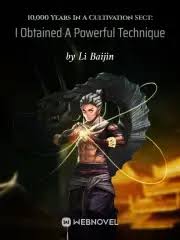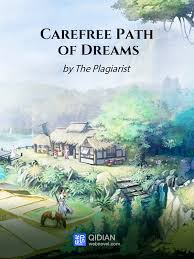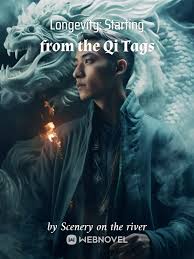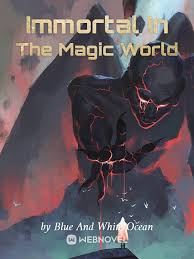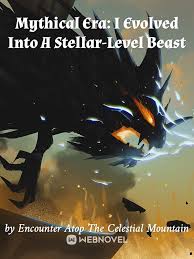The Story in 3 Sentences
A transmigrated cultivator named Jiang Ming awakens inside a secluded sect with a powerful system that grants him immense cultivation rewards simply for living in peace and avoiding conflict, setting him on an unexpected path of quiet dominance.
His carefully maintained solitude is disrupted by the arrival of Zi Linglong, a reincarnated prodigy junior sister whose explosive talent and fiery spirit force him to engage with the outside world far more than he ever intended.
As ancient secrets unravel and rival sects threaten their sanctuary, Jiang Ming must reconcile his desire for eternal tranquility with the growing responsibility to protect those he’s come to care for, ultimately reshaping the fate of the entire cultivation world.
Why It Stands Out
1. The Anti-Hero’s Garden of Time
Unlike typical cultivation protagonists who chase power through bloodshed and ambition, Jiang Ming’s strength blooms from stillness. His system rewards longevity and non-involvement, turning the genre’s usual escalation logic on its head—peace becomes the ultimate cheat. This inversion creates a uniquely meditative tension where every interaction risks undoing centuries of accumulated cultivation, making even mundane conversations feel perilous.
2. Rebirth Meets Slice-of-Life Cultivation
The novel masterfully blends the high-stakes drama of reincarnation tropes with the slow, almost pastoral rhythm of daily sect life. Zi Linglong’s past-life memories clash with her current innocence, while Jiang Ming tends to spiritual herbs and watches clouds pass—yet beneath this calm surface, cosmic-level cultivation breakthroughs occur. This duality gives the story emotional depth rarely seen in action-heavy xianxia narratives.
3. System as Silent Architect
The system here isn’t a chatty AI or a quest-giver; it’s an impersonal, almost divine mechanism that responds only to Jiang Ming’s adherence to non-action. This design choice removes hand-holding and forces the protagonist to interpret rewards and consequences through intuition, making his growth feel earned rather than gifted. The system’s logic becomes a philosophical mirror reflecting Taoist ideals of wu wei—effortless action through non-interference.
Characters That Leave a Mark
There’s Zi Linglong – an eleven-year-old girl with the soul of a past-life empress, whose phoenix bloodline awakens through sheer will and whose defiance of sect hierarchies constantly drags Jiang Ming out of his isolation, challenging his philosophy with every impulsive act.
You’ll meet Heng Daozhong, who serves as the First Seat of Zhiyang Peak and wields Dao Seed Realm cultivation with eight-star innate talent; his stern loyalty to the sect and subtle suspicion of Jiang Ming’s unnatural progress create a compelling foil to the protagonist’s detached demeanor.
And Qiyuan Sect? They’re the one who represent the old guard of cultivation orthodoxy, embodying the rigid traditions that Jiang Ming’s existence quietly undermines—though never named as a person, the sect itself functions as a collective antagonist whose very structure is destabilized by the duo’s unconventional rise.
The Flaws Fans Debate
The pacing suffers from a jarring tonal shift, beginning as a serene slice-of-life cultivation tale before abruptly pivoting into high-octane conflict, leaving some readers disoriented by the lack of narrative transition.
Translation quality is frequently criticized, with missing sentence starters, grammatical errors, and inconsistent terminology disrupting immersion and making complex cultivation concepts harder to follow.
World-building remains underdeveloped, as the broader cultivation landscape beyond the immediate sect feels vague and generic, with rival factions introduced more as obstacles than as fully realized societies with their own histories and philosophies.
Must-Experience Arcs
Ch. 1–50: The Mountain of Silent Cultivation – Jiang Ming awakens with his system and begins accumulating millennia of cultivation through simple seclusion, tending spiritual fields and avoiding all interaction while the world outside remains unaware of the sleeping dragon in their midst.
Ch. 150–220: The Phoenix Awakens – Zi Linglong’s bloodline fully activates during the Tower of Trials, forcing Jiang Ming to intervene publicly for the first time and shattering his carefully maintained anonymity, setting off a chain reaction of political and martial consequences across the region.
Ch. 450–538: The Grand Dream’s End – Ancient truths about the nature of reality and reincarnation surface as Jiang Ming confronts cosmic-level entities, culminating in a final choice between eternal solitude or reshaping the cultivation world to protect those he’s grown to love.
Killer Quotes
“Who would awake from the grand dream? I’ve known about it all my life!”
“After I form a clone of myself, I can leave the mountain easily, Jiang Ming said to himself excitedly.”
“Break off the engagement? Su Nuo’s famous line echoes through the sect halls, but here, even emperors bow to the quiet cultivator.”
Cultural Impact
The novel sparked a micro-trend of “passive cultivation” stories on Webnovel, where protagonists gain power through inaction rather than combat.
Fans created memes contrasting Jiang Ming’s “100,000 years of cultivation for doing nothing” with typical protagonists who bleed for every scrap of power, dubbing it the “Ultimate NEET Fantasy.”
It gained a cult following among readers seeking a slower, more introspective alternative to the usual cultivation power fantasy, with over 4.5 million views on Webnovel despite its niche premise.
Final Verdict
Start Here If You Want:
A refreshing subversion of the cultivation genre where peace is power and silence speaks louder than sword clashes.
A dual-character dynamic that balances cosmic reincarnation drama with grounded, almost domestic sect life.
A philosophical undercurrent that questions whether true strength lies in domination or in the courage to remain uninvolved.
Study If You Love:
Narratives that embed Taoist principles like wu wei into their core mechanics rather than just using them as aesthetic flavor.
The interplay between system-based progression and organic character development in webnovels.
Stories where the setting itself—mountains, clouds, spiritual herbs—becomes a silent character shaping the protagonist’s journey.
Avoid If You Prefer:
Fast-paced, battle-heavy plots with constant action and clear-cut villains from the outset.
Polished, professionally edited prose with consistent translation quality.
Richly detailed world-building with intricate political systems and deep lore from the first chapter.
